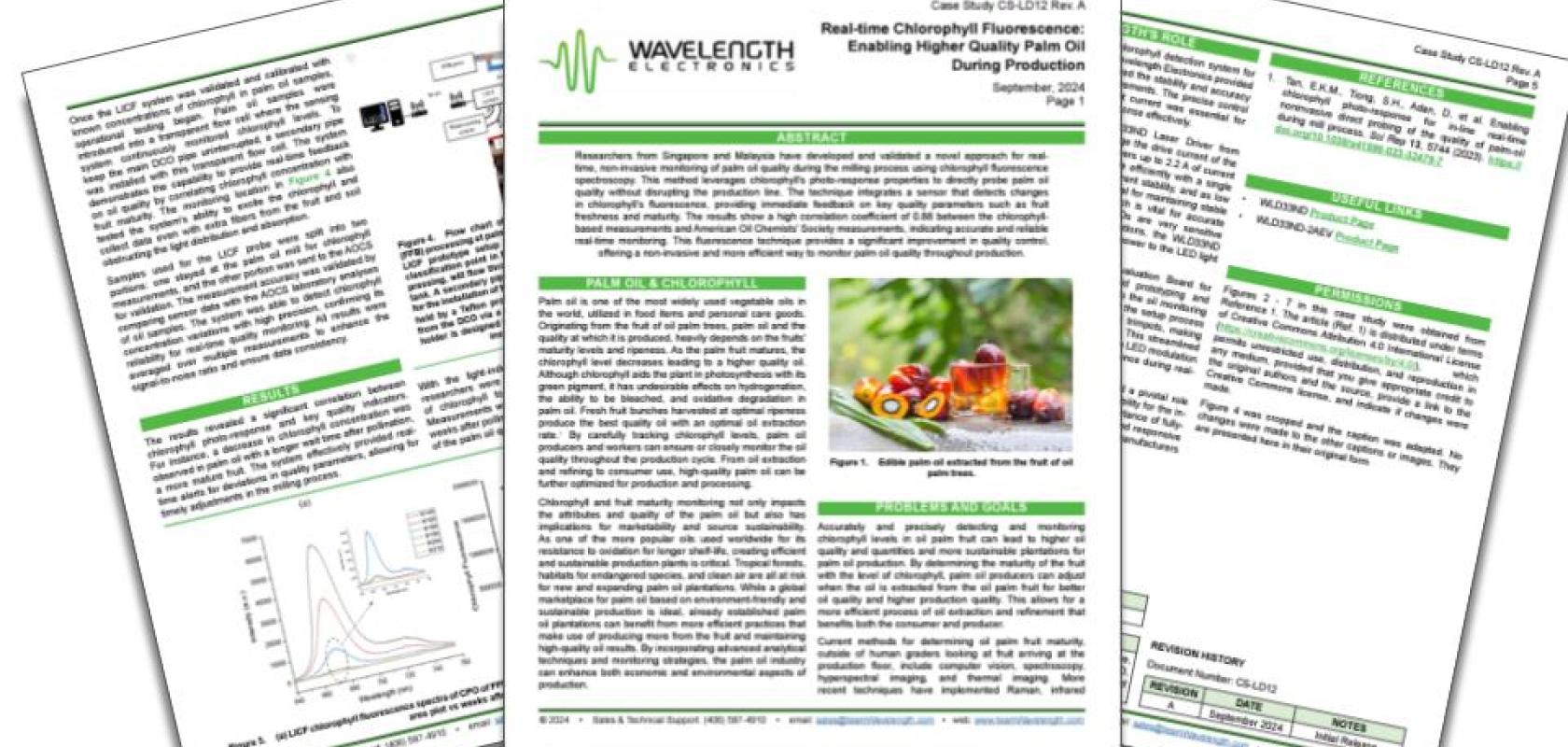Stop Quality Loss in Palm Oil Production with Real-Time Chlorophyll Monitoring

Real-time chlorophyll fluorescence: enabling higher quality palm oil during production - A Wavelength Electronics White Paper
Immature palm fruits with high chlorophyll content degrade oil quality, reduce yield, and threaten sustainability — costing producers time and money.
This White Paper reveals how a novel laser-induced chlorophyll fluorescence (LICF) system monitors fruit maturity in real time—non-invasively—helping you optimize harvest timing, improve oil quality, and boost sustainability.
What’s inside?
Proven 0.88 correlation with industry oil quality standards
Technical insights on a stable, low-noise WLD33ND driver powering the system
How real-time, non-destructive sensing transforms quality control workflows
Who should read this?
Engineers, scientists, and procurement teams working on optical sensing, fluorescence, and real-time quality assurance systems.
Download now to learn how this breakthrough technology can enhance your palm oil production and advance your sensing innovation.

